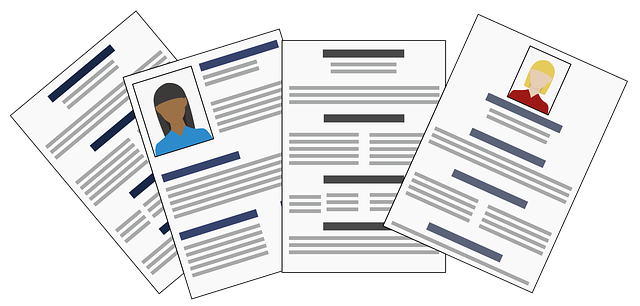How to Plan Your Job Search During Senior Year of College

Find your degree

Your senior year is probably going to be the busiest year that you spend in college, objectively speaking. There is a lot that you’re going to have to do; on top of finishing up your classes and completing any capstone projects or papers, it’s also going to be time to start looking for a job. In this short guide, we’re going to give you some tips that will make that planning process go a little bit smoother for you, and hopefully be a little bit more successful. We also have a robust Guide to Getting Hired After College that you may be interested in.
Paving Your Way to Job Search Success
The way that students go about searching for a job their senior year is going to be different for everyone. Some of you may have been thinking about it since your freshman year and some of you may have been focused on your studies and your extracurriculars so much that you’re only just getting started. Whatever your method is, there are a few key things that you should do before you get started. Some of these things, the sooner you do them, the better. It will give you less to worry about when the actual searching part comes around.

The first thing that we suggest you do as soon as possible is work on your online presence. This is a weird reality that young people have to face that our parents didn’t and it can be tough because it leaves a lot of people going in blind. Your potential employers are going to look you up on social media to learn more about you. The first thing that you’ll need to do is go through your social media accounts with a fine-toothed comb. Take advantage of privacy settings to limit what older posts that potential employers will see. However, keep in mind that it’s going to be a little bit suspicious if they find no digital footprint for you at all. Generally clean up your social media to make sure there aren’t any embarrassing photos, or that you aren’t swearing much in your public posts. There is no telling who will look and what they’ll be looking for, so the best thing for you to do as an adult is make sure that your online presence is as presentable as possible.

The next tip we have is taking advantage of LinkedIn. We know that it can feel slightly redundant because you will, of course, submit a resume (which we will talk about later on). There are plenty of sources that describe why LinkedIn is important. It is another piece of social media that employers are going to look at so it is a good idea to plan ahead and make sure that they can find you. It’s also important to fill out your information as thoroughly as you can that way potential employers can see past jobs that you’ve held, some information about your studies, and see a bigger list of your skills. The advantage of LinkedIn is that it doesn’t need to be as concise as a resume. Also, it is one of the most common professional networking websites and you may get job offers just by making sure you put yourself out there in this way.
Making sure that you have a professional appearance online and look like you’re serious about professional networking will go a long way for you in your job search, so it’s best to get a head start on this as soon as possible.
Writing a Resume

The first real step in planning for your job search during your senior year of college is making sure that your resume is thorough and ready to impress no matter whose desk it lands on. Because the process of looking for a job has become so modernized, it can feel almost archaic and unnecessary to bother with a resume but that’s simply not the case. Your resume must be flawless. This can feel like a lot of pressure when you’ve never written one before but there are a lot of great resources out there that can help you. This guide to writing a resume comes straight from one of the top-ranked colleges, Florida State University.

There is no one correct way to create your resume. Some people opt for the most traditional “chronological” format, where all of your past experience is detailed in order of when you did those things. You can also try a different approach and use what has come to be known as the “functional” format. This method is great if you’d prefer to highlight only your most relevant experience related to the job that you want. This can be a more complicated way to do it; however, it would absolutely highlight your skills and the things you’ve done that make you stand out among your competitors for this job. Regardless of the method that you choose, it is important to make sure you’re listing everything that you’ve done that will show that you have the skills for the job. Extracurricular activities, volunteer opportunities, job shadows, and internships may not feel like a natural part of a resume but, you should include them if you feel like it shows that you have the skills an employer in your field would be impressed by.

The next thing we want to touch on feels like a no-brainer but it is absolutely worth saying. Make sure that you’re looking over your entire resume and seeing to it that all of the fonts are the same, that all the text is the same size, everything is spelled correctly, and that you’ve been concise. It is difficult to condense everything that you want to say down to shorter sentences; however, being too long-winded with your resume can put off employers that were otherwise impressed with you. Make sure that your contact information is correct and that you’re using a more professional email rather than a throwaway you’ve had since middle school. Crafting a great resume is just as important as what you end up putting on it. Tip: When writing your cover letters, make sure that each one is unique to the job you’re applying for.
Doing your Research
Unfocused and uninformed candidates make life harder for those who work in human resources or hiring managers. One great way to plan your job search as a senior and set yourself up for career success is making their job a little bit easier. That can be done by making sure that you’ve done your research. We understand that that is a little bit vague of a tip, so we’re going to break it down into three parts that are all very important.

Research potential positions in your field. Job descriptions on hiring sites may not always be very thorough because it is assumed that you probably know what you’re getting into. This can be stressful when you don’t have a lot of experience in the field and as a senior in college, you probably don’t have very much. This puts the burden of research on you. You should do what you can to find out what different jobs entail, what your degree qualifies you for, and what you think is going to be the best fit for you. This will also help you because it will help you plan your career trajectory so you know where to start in order to get to where you truly want.
Research your industry. This doesn’t need to be as in-depth and serious as the previous tip; however, it’s important to read about trends and current news in your industry. This helps you to stay informed. You will have a better understanding of the job market, what is going on in the industry that may directly affect you or the company you end up working for, and what the future holds. Being able to talk about current events and trends in the field you want to work in shows that you’re informed. It can also help you keep your passion for what it is that you went to school for because you will have a deeper understanding of where your industry is heading and how that is impacting the world.

Lastly, you should research the companies that you plan to send out applications to and express your interest in. This is great because it will allow you to make conversation during your interview. You can use job websites to read about what this particular employer looks for in a candidate, any problems that past employees may have had (along with their positive experiences), and more. Researching the company before you apply will also give you the information you need to tweak your resume and cover letter to accurately demonstrate why you would be a great fit for the job. This attention to detail is almost essential if you’d like to impress a potential employer.
Planning for Interviews

Another key step in planning for your job search and making sure that you’re prepared to land the job you want is preparing for interviews. Our College Student’s Guide to Interviews After Graduation is full of information that we think you’ll find very helpful when the time comes. However, what does it mean to plan ahead for something as unpredictable as a job interview?
Like we suggested in the job search planning tip above, researching the company that you want to work for is essential. There are websites like Glassdoor and sometimes even Reddit (though you should take some things you find on any social media with a grain of salt) where you can read about other people’s interview experiences. You can look up information about what other people were asked in their interviews, the structure of the interview, and so on. For instance, some companies include a “test” and make you wait or purposely reschedule to see how you react to unpredictability. This isn’t a very desirable practice but, if you know it is coming then you can be adequately ready for anything the interviewer might throw at you. If you can’t find information specific to the company you’re interested in, you may still benefit from researching what kinds of questions interviewers are asking in general.

Another part of the interview that we think is extremely important is one that isn’t talked about as much, which is the part where you’re given the opportunity to ask any questions that you may have. If you’ve researched the company and are aware of industry trends, you’ll be more ready to ask important questions. It shows that you’re interested and informed, which is impressive. A lot of candidates freeze up and say that they don’t have any questions, so planning a short list ahead of time and keeping them in the back of your mind is a great idea.
The last part of planning for interviews is one that will be more relevant when the time comes but we’d like to mention it. You should always make sure that you know the address of where you will be expected to go for your interview and plan ahead based on that. How long will it take you to get there? What will the weather be like on the day of, so you can dress appropriately and leave early if necessary? Having this information solid in your mind ahead of time can reduce the overall stress of a job interview and will allow you to focus on the most important part, showing off that you’re the best candidate by being punctual and professional.
Using Your Available Resources

One more thing that we’d like to include in this quick resource for planning your job search as a senior in college is that you have a lot of other resources at your disposal! The Career Services that your particular school offers might differ slightly, but even online colleges offer a wide variety of career services that seek to help students find a job.
The career services department at your college could help you create a resume or cover letter; they could also offer a service where they proofread what you’ve already done and make sure that it will attract potential employers to want to learn more about you.
A lot of colleges provide workshops that will help you with networking, professional development, and more. They may also be able to help you find networking events that are local to you if you’re an online student and help get you set up to attend.
Some career services departments work directly with employers so they may be able to help you land a job in your field. Even if not, they could help you set up job shadowing opportunities or internships, which are great ways to help get a better understanding of what you would be doing on the job or, at best, can be pathways to a career.
The important thing to remember is to take advantage of all of the resources at your disposal! They will help make your job search a breeze.
